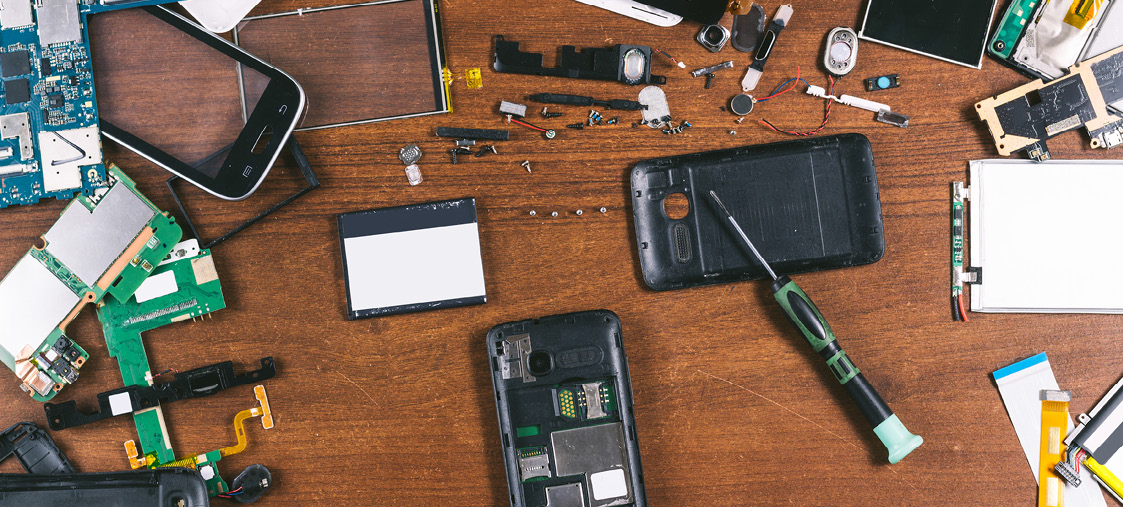A clear message from CES 2025, earlier this year, was that carbon neutrality is no longer the pinnacle of environmental responsibility. The true competitive edge lies in the circular economy, as it promotes sustainability, unlocks innovation and cost efficiency, and increases customer loyalty.
The environmental accountability element of circularity goes hand-in-hand with market foresight. Companies that view circular practices as just checkboxes officially risk being left behind.
The circular economy is replacing the linear model
The traditional linear model of 'take, make, dispose' is profitable for manufacturers and convenient for consumers. But it creates waste, gives consumers a worse solution, and does nothing for residual values of devices and brand integrity (more on that shortly). By comparison, the circular economy promotes a system where products and materials are constantly repurposed and reused. This shift is critical as the demand for electronic devices persists alongside a growing awareness of environmental impacts.
There has been significant market growth in the circular economy for technology. At Alchemy, we've had a front-row seat for it, and it's been a joy to watch. This growth is fuelled by several factors, including advances in technologies like Alchemy's that support OEMs with device recovery and refurbishment and a growing awareness of the environmental and business opportunities circularity brings.

The role of residual values of refurbished tech
As devices age, their residual value—the remaining value after use and depreciation—becomes a key factor in their potential success in the refurbished market. Unsurprisingly, big brands with more expensive devices keep higher residual values compared to smaller brands.
This is where flash sales cause a problem. Enormous price crashes massively impact the residual value of older models – why would you buy refurbished if the newest model is only 10% more? At Alchemy, we spend a lot of time educating OEMs on this – it's not a coincidence that those with well-established brand integrity rarely engage with flash sales, and have solid trade-in programmes. that
Ultimately, the manufacturers that focus on quality products that last are the ones that benefit the most from circularity. Repairability is still important, but a product that lasts twice as long as another will naturally have a much lower carbon footprint than its cheaper alternative.
Getting businesses involved
The rising cost of tech is a big problem for most businesses, and many are looking for ways to save some money. Steering them towards refurbished technology provides a great solution – they can get some value back from trading in their existing fleet and buy premium devices at a great price.
We sometimes find resistance in attitudes, mainly worries about the quality of the devices they'll get and their security. But with some education, we can battle these misconceptions. Businesses must make refurbished devices part of their tech procurement, especially those with high IT spending and significant Scope 3 emissions. Doing so means they can reduce carbon footprints and make substantial financial savings – sometimes up to 70% compared to new.

Envisioning the future
As the circular economy continues to grow, the tech industry must learn to accommodate its advances. Transitioning beyond just carbon neutrality to actively cultivating a circular economy promises a strategic vantage for businesses willing to innovate.
Likewise, the circular economy must adapt to include new devices without losing its grip on sustainability. As new technologies emerge, maintaining the integrity of a circular system will be crucial. It's not just about recyclability or reduction in waste, but about revolutionizing the design process itself. We're excited to continue leading this transformation, demonstrating that what's good for the planet can indeed be great for business, too.
James Murdock is Co-Founder of Alchemy, the world’s fastest-growing circular technology company. With over 20 years of experience delivering marketing and business operations across leading tech markets, he is a leader in driving innovative solutions to reduce e-waste and carbon emissions. Under his leadership, Alchemy has refurbished and resold more than 9 million devices, saving over 540 million kilograms in carbon emissions. He strives to empower businesses and consumers to reduce their carbon footprint and embrace circularity. James is passionate about creating impactful change, and he continues to lead Alchemy’s mission to normalise sustainable technology and pave the way for a greener future.